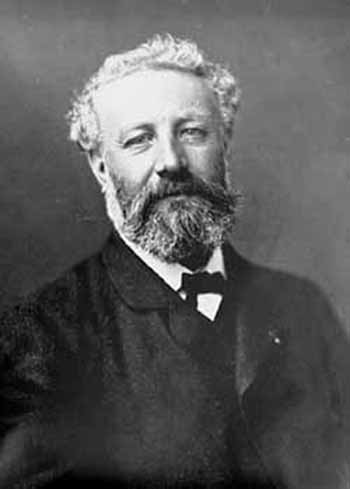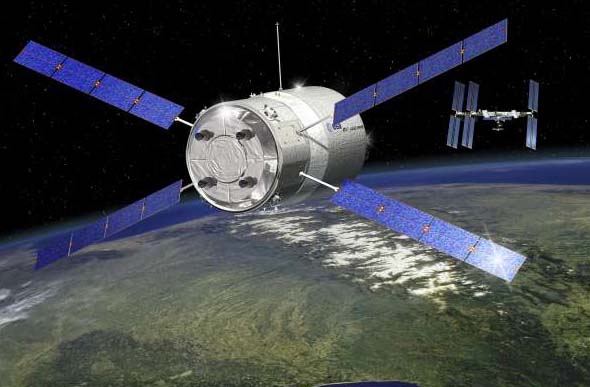

April 3, 2008
Jules Verne, an Aquarian, was a French author who pioneered the science-fiction genre. He is best known for his novels Journey to the Center of the Earth (1864), Twenty Thousand Leagues under the Sea (1870), and Around the World in Eighty Days (1873). Verne wrote about space, air, and underwater travel before air travel and practical submarines were invented, and before any means of space travel had been devised. He is the third most translated author in the world, according to Index Translationum. Some of his books have been made into films. Verne, along with H. G. Wells, is often popularly referred to as the "Father of Science Fiction".
From Corporate to Creative
When Jules Verne bragged to a coworker one morning in 1863 that he would soon be leaving his job in the financial markets of Paris for a 'gold mine' in a brand new writing career, little did he know that he was changing the future. Surely he knew he was changing his own destiny, but there is no way he could have realized the profound effect he would have on the modern world, and especially on the late 20th century. Leaving his pursuit of capitalism in the fury of the trading floor to cash in as a science fiction writer, he would herald the dawn of a new world - one with exciting new inventions bringing adventure, leisure and a bright hope for the future of mankind. Unlike any other author before or since, Jules Verne went on to write more than 60 novels that would influence the scientific community of the 20th century.
While H.G. Wells, George Orwell and Aldous Huxley predicted gloom and doom for a society advancing too fast in the technological realm, Verne is known mainly for romanticizing the dream of a world with airplanes, helicopters, televisions, computers, automobiles, air conditioning and motion pictures. He envisioned space flight and trips to the moon, guided missiles, skyscrapers of glass and steel, global communications networks, and submarines carrying hundreds of men miles below the surface of the sea. He predicted with startling accuracy all of these inventions, and the things that would be accomplished by them, long before they became reality. Verne's writings greatly influenced Yuri Gagarin, the first person in space, and Neil Armstrong, the first person to walk on the moon. The inventor of the bathysphere, William Beebe, would cite Verne as his primary inspiration, as would polar explorer Admiral Richard Byrd.
It is amazing how much of what he wrote became reality - not just his predictions of what technologies would emerge, but the specifics of how they would be deployed. Clearly he understood science in a way that gave him remarkable foresight regarding both the feats that were possible and the elements that were necessary to accomplish them.
In his books about space travel, Verne launched his spacecraft from the central coast of Florida, not far from Cape Canaveral, and landed it just three miles from where Apollo 11 splashed down on its return from the moon in 1969. He correctly calculated the velocity required for his spaceship to escape earth's gravitation and accurately described the effects of weightlessness on his astronauts. He also realized that the reentry of the craft would be fiery as it streaked through the earth's atmosphere.
Some believe that many of these insights were self-fulfilling. This may very well be the case; Verne exerted considerable influence on those scientists and engineers who pioneered space flight, including Hermann Oberth and Konstantin Tsiolkovski.
Perhaps it is so with many prophecies and predictions about society and technological progress. Do they in fact provide the seeds of their own fulfillment? When people of vision imagine what mankind is capable of accomplishing, do those of succeeding generations pick up the prophet's mantle and make it so? Jules Verne himself seemed to think so. Verne once said, "Whatever one man is capable of imagining, other men will prove themselves capable of realizing."

 Jules Verne ATV: Robot space truck docks with ISS
Jules Verne ATV: Robot space truck docks with ISS Jules Verne ATV Wikipedia